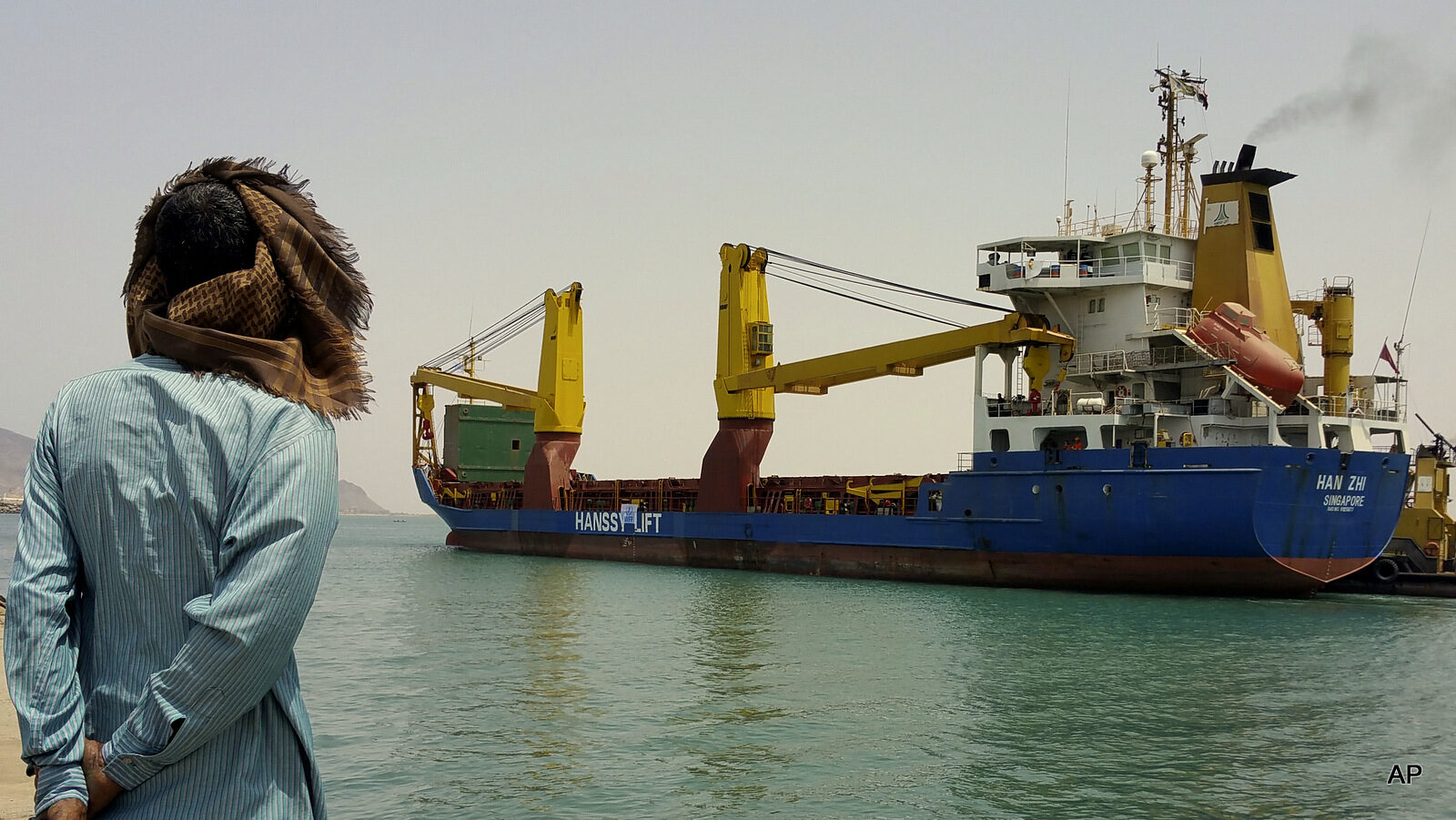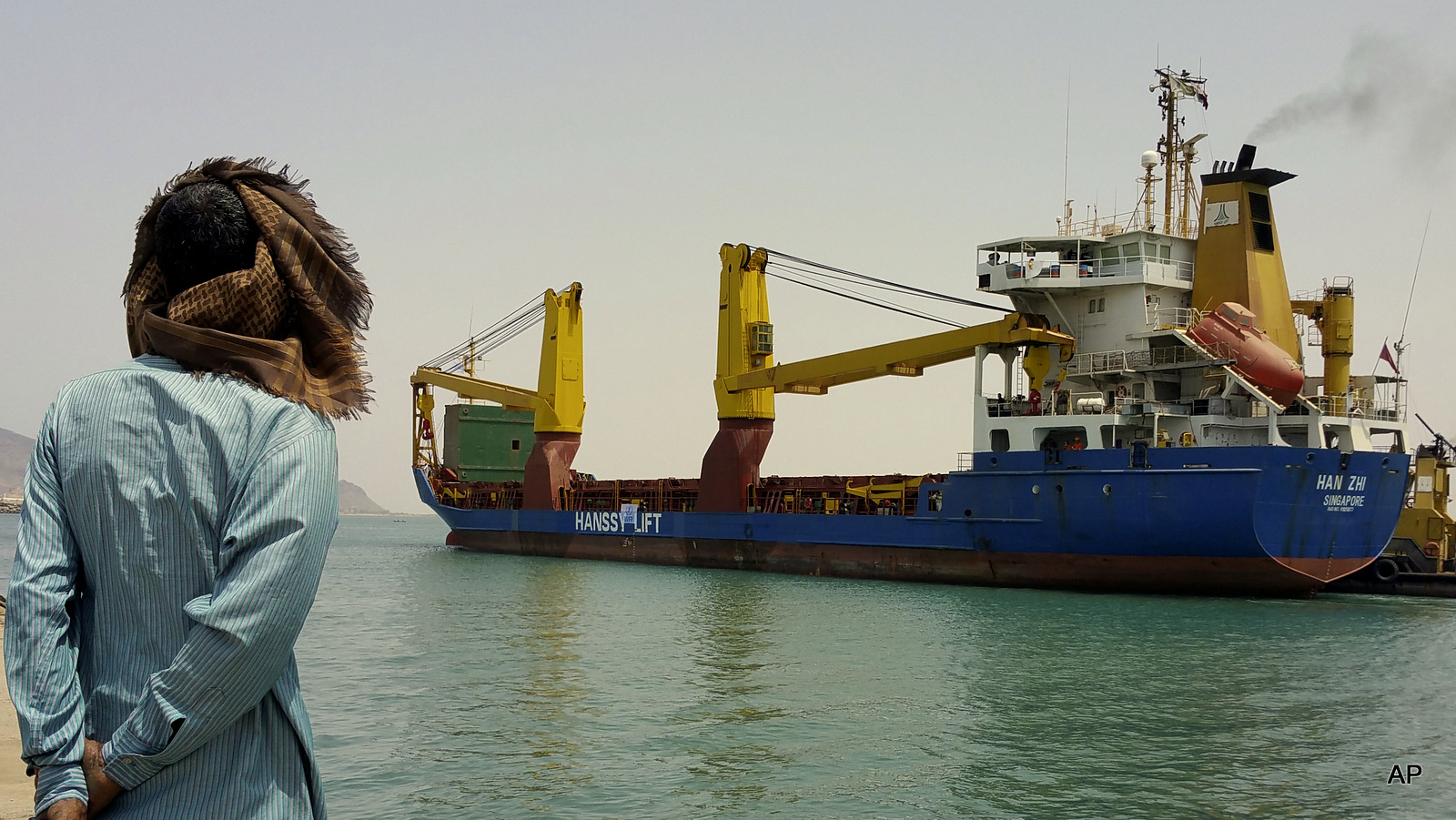
SANAA, Yemen — Five months have passed since Saudi Arabia declared war on Yemen, and for all its might, political resolve and military arsenal, the kingdom has yet to bring the poorest nation on the Arabian Peninsula to heel.
Its institutions in tatters, its military apparatus reduced to rubbles, and with no economy to speak of, Yemen’s imminent collapse has been foretold time and time again by experts and state officials. Yet these predictions have not quite come to fruition.
In its match against Goliath, David is resisting. In rallies, demonstrations and even an open letter signed by 18 Yemen scholars and experts living in the United States and Britain, tens of thousands of Yemenis and others around the world have decried Riyadh’s actions, calling for an end to all violence.
Yet this dedication to opposing Riyadh’s actions doesn’t mean Yemenis aren’t suffering. The World Health Organization issued a statement in June, warning that a “major health crisis is unfolding in Yemen, where hospitals have been destroyed, health workers killed and critical shortages of food, medical supplies and fuel are causing large-scale suffering.”
In early July, the United Nations declared the situation in Yemen to be the highest level of humanitarian emergency. According to a U.N. report published July 7, over 1,500 civilians have been killed, 3,600 have been injured, and over a million have been displaced in the ongoing conflict.
A “major health crisis is unfolding in Yemen, where hospitals have been destroyed, health workers killed and critical shortages of food, medical supplies and fuel are causing large-scale suffering.”
-World Health Organization
By U.N. estimates, about 80 percent of all Yemenis — more than 20 million people — are in need of humanitarian aid.
In late March, Amnesty International confirmed the deaths of at least six children under the age of 10 during a Saudi-led air raid that killed 25 people. The report read: “The organization spoke to medical personnel at four different hospitals where the dead were taken after being pulled from the rubble of 14 houses that were hit in a residential neighbourhood near the city’s international airport.”
Already the poorest and most vulnerable population in the Peninsula and arguably the Greater Middle East, Yemenis have seen their livelihoods and freedom of movement disintegrate under Saudi Arabia’s war momentum. In late April, Saudi Arabia bombed Sanaa International Airport, effectively trapping civilians within Yemen’s borders.
Despite mounting evidence of abuses and war crimes, it would take the international rights community several months to stand up to the oil giant. On July 27, Human Rights Watch unequivocally slammed Saudi Arabia for a litany of human rights violations. The report reads:
“Saudi-led coalition airstrikes that killed at least 65 civilians, including 10 children, and wounded dozens in the Yemeni port city of Mokha on July 24, 2015, are an apparent war crime. Starting between 9:30 and 10 p.m., coalition airplanes repeatedly struck two residential compounds of the Mokha Steam Power Plant, which housed plant workers and their family members.”
With fierce battles raging across Yemen, and as warplanes continue to rain lead onto heavily populated areas, Saudi Arabia has been looking for innovative ways to exert pressure onto the resistance movement. It is now withholding humanitarian aid to Yemen’s civilians to tame the growing insurrection movement against its rule and thus secure victory in the face of international law — all under the guise of the United Nations.
The kingdom is holding hostage not just Yemen but to some extent the international community, using the United Nations’ humanitarian institutions to wage war. It’s using institutions meant to offer relief as a means of weaponizing aid.
Hassan Jayache, a senior leader of the Houthi movement, which took control of Yemen earlier this year, told MintPress News that local NGOs have found themselves caught in a political web, forced to surrender their neutrality to secure not just funding but access to areas where aid is needed.
“The Saudis have exerted political pressures onto local NGOs and international aid organizations, demanding that aid be restricted to pre-approved segments of the population, based on political affiliations and according to religious criteria,” Jayache said.
“In other words, Al Saud has decided to starve the Shias of Yemen, hoping to break the Houthis’ momentum.”
Turning aid agencies into weapons of war
Mohammed Al-Emad, a Yemen-based journalist and political commentator, says Saudi Arabia called on several media organizations in the Middle East, the United States and Europe, demanding that “coverage on Yemen be sanitized and in keeping with Riyadh’s chosen political narrative.”
While Al-Emad’s claims could be considered bias, WikiLeaks published a series of confidential cables pointing to systematic media/PR manipulation on the part of the Saudis.

But if the international community had been standing silent before Saudi Arabia’s war crimes, exploiting what Al-Emad describes as a convenient media blackout to avoid addressing some sticky legal points, Riyadh’s move against the U.N. might prove one indiscretion too many for anyone to ignore.
The work of King Salman and his allies to sabotage U.N.-organized aid to Yemen started on April 17 in the wake of a U.N. emergency flash appeal for $274 million to respond to the most pressing humanitarian needs over the following three months.
Speaking on Yemenis’ hardship, Humanitarian Coordinator Johannes Van Der Klaauw stressed:
“The devastating conflict in Yemen takes place against the backdrop of an existing humanitarian crisis that was already one of the largest and most complex in the world … Thousands of families have now fled their homes as a result of the fighting and airstrikes. Ordinary families are struggling to access health care, water, food and fuel – basic requirements for their survival.”
Saudi Arabia immediately volunteered the exact amount requested. But the aid would come with strings attached.
Vice News reported in June that Saudi officials leaned on U.N. officials to sabotage aid deliveries, threatening to close the kingdom’s checkbook should U.N. agencies deny Riyadh’s requests.
Based on a U.N. memo obtained by Vice, the media outlet reported that the Saudi government imposed unprecedented conditions on aid agencies, demanding that assistance be limited to Saudi-approved areas and confined to strictly Sunni civilian populations.
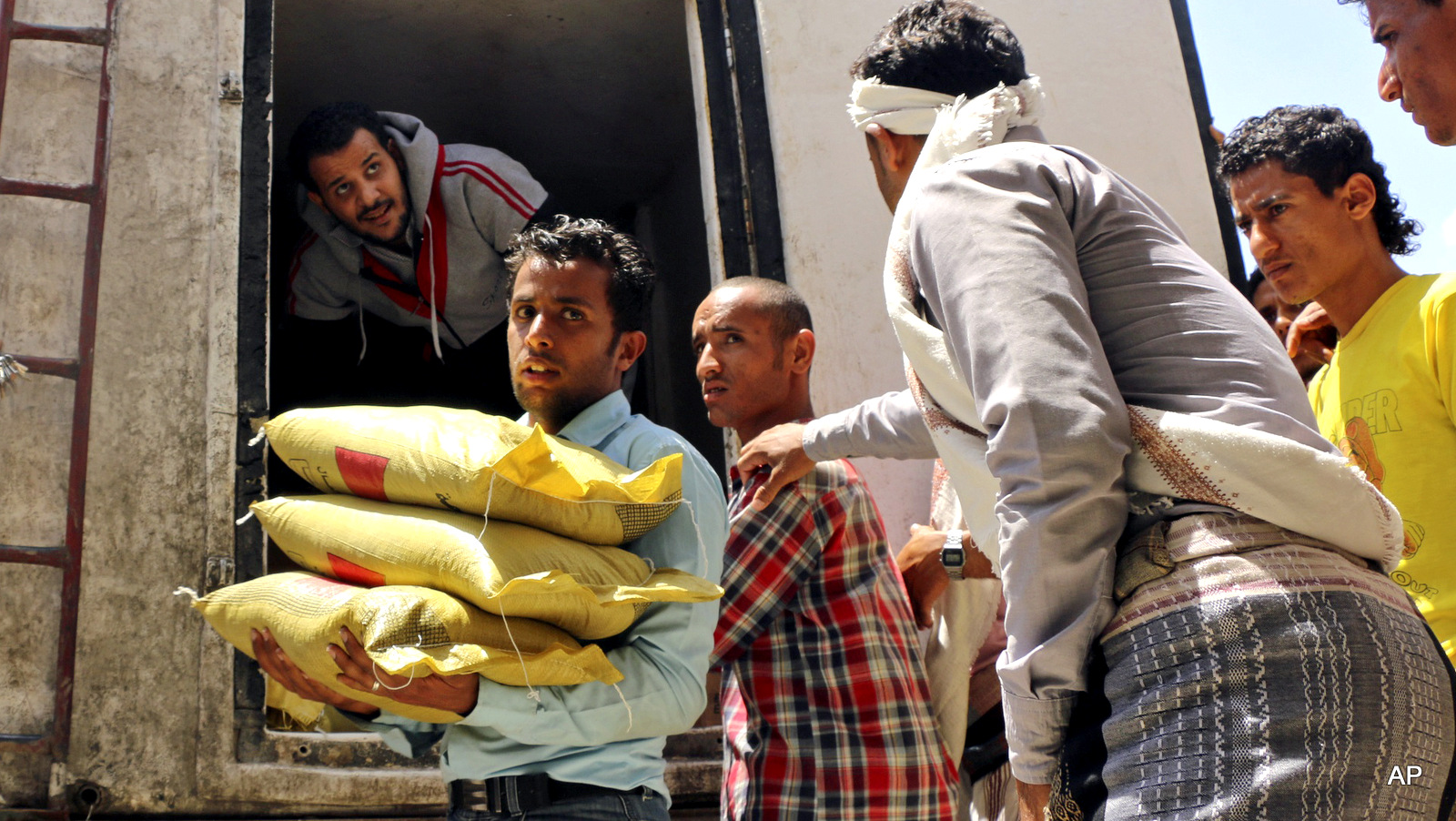
“If such despicable logic can somehow be expected from a power which has wielded sectarianism to sow discord and from chaos rise a tyrant, what of the UN, an institution which claims itself impartial and fair?” Hasan Sufyani, a leading political analyst at the Sana’a Institute for Arabic Studies, asked MintPress.
He added:
“If humanitarian organizations are to be subjected to the rules of realpolitik then truly the world has reached a dark chapter in its history and reverted back to organized barbarism.
Still, no well-thinking Western powers has thought to challenge Saudi Arabia’s war crimes in Yemen. In a world system where capitalism reigns king, the rich and haughty stand above the pettiness of the rule of law.”
As a rule of thumb, and to avoid political entanglements, humanitarian organizations tend to shy away from donations which come with strings attached, especially when they fall under the umbrella of the OCHA.
Meant as a supranational institution, OCHA was never intended to be manipulated as an instrument of pressure, legal absolution or, in the case of Yemen, a weapon of war.
$244M, split nine ways
Playing aid as both a military tactic and a PR exercise to redeem its atrocious human rights record and whitewash its war crimes in Yemen, Saudi Arabia has held the U.N. hostage to its policies.
Such shadowing and lobbying on the part of Saudi Arabia had Yemeni officials waving the political red flag.
Ali al-Bukhaiti, a prominent member of the Houthis’ political arm, told MintPress his office has vehemently denounced Riyadh’s attempts to “buy the U.N. out to better corner Sana’a government and foil the resistance movement.”
Yet it appears the train was already far too out of the station for anyone to hit the brakes.
By late June, amid reports of a worsening humanitarian catastrophe in Yemen, the Saudi government finally announced that out of its initial pledge of $274 million, $244 million would be divided among nine U.N. agencies.
On the heels of this announcement Stephen O’Brien, the U.N. undersecretary for humanitarian affairs and emergency relief coordinator, sent a letter to the Interagency Standing Committee, a global humanitarian coordinating body, which includes both U.N. humanitarian agencies and outside NGOs.
Vice News confirmed the letter was attached to a Saudi press release announcing the nine-way cut, explaining how the funds would go through the recently created King Salman Center for Relief Humanitarian Works (KSC).
“Having agreed to the overall envelopes, however, the KSC would like to negotiate individual Memorandums of Understanding (MoUs) with each recipient agency,” O’Brien told Vice, openly admitting to Riyadh’s lobby.
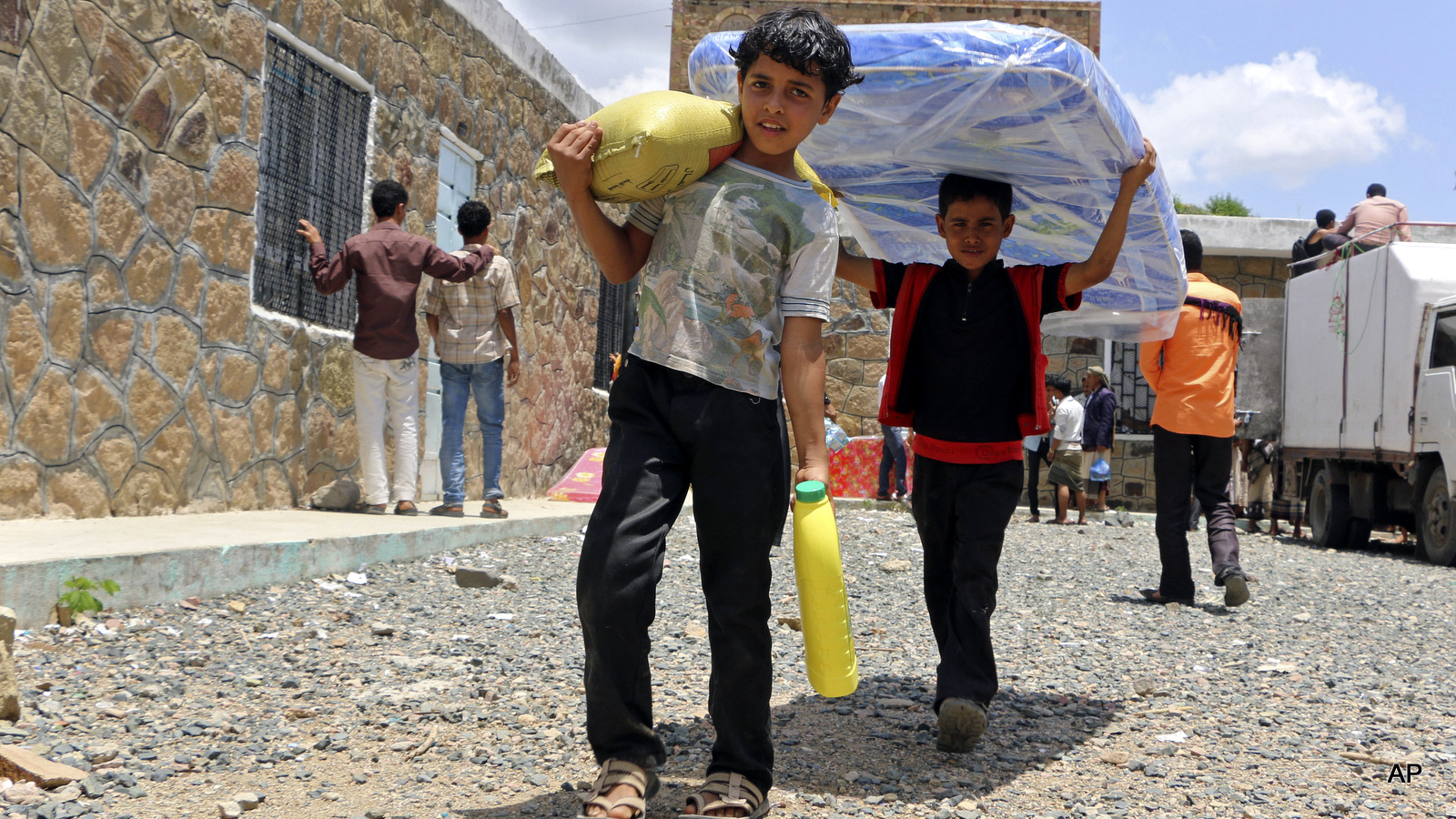
“Interestingly few media outlets picked up on this Orwellian development! After unilaterally and, let’s be frank, after illegally declaring war on Yemen, the Saudi government wants also to dictate how humanitarian relief is distributed in the very country it is attacking,” Sheikh al-Matari, the head of Yemen’s Rasoul Akram Foundation, an aid organization, told MintPress.
Vice News quoted a U.N. aid official in Yemen as saying: “The UN has punted and handed off the problems to these agencies. I’ve never seen that before.”
The official continued:
“The charitable way of saying it is this is a compromise — the less charitable way of saying it is that they folded. It’s really unusual for a single donor to have any substantive role once they contribute funds, let alone negotiate individual MoU’s with agencies.”
When asked about this very public U.N. capitulation before Al Saud’s millions, O’Brien attempted to rationalize the situation by arguing a massive deficit funding gap.
O’Brien wrote: “With regard to NGOs, I am aware that there are sensitivities in receiving funding directly from the KSC and we therefore must work actively to mobilize additional funds to be allocated directly, or via the Pooled Fund, to our front-line partners.”
Yet, as al-Matari noted:
“That’s only half of the story. What O’Brien is not telling is that by accepting Saudi Arabia’s conditions on aid distribution and aid funding in relation to Yemen, the U.N. de facto institutionalized aid segregation by allowing humanitarian relief to be conditional to certain criteria: political affiliation and religious orientation.
With Yemen set as a precedent, who’s to say that a similar setup will not be replicated in other countries in the region — mainly, Syria, Iraq, Bahrain and Libya?”
‘Institutionalizing war crimes’
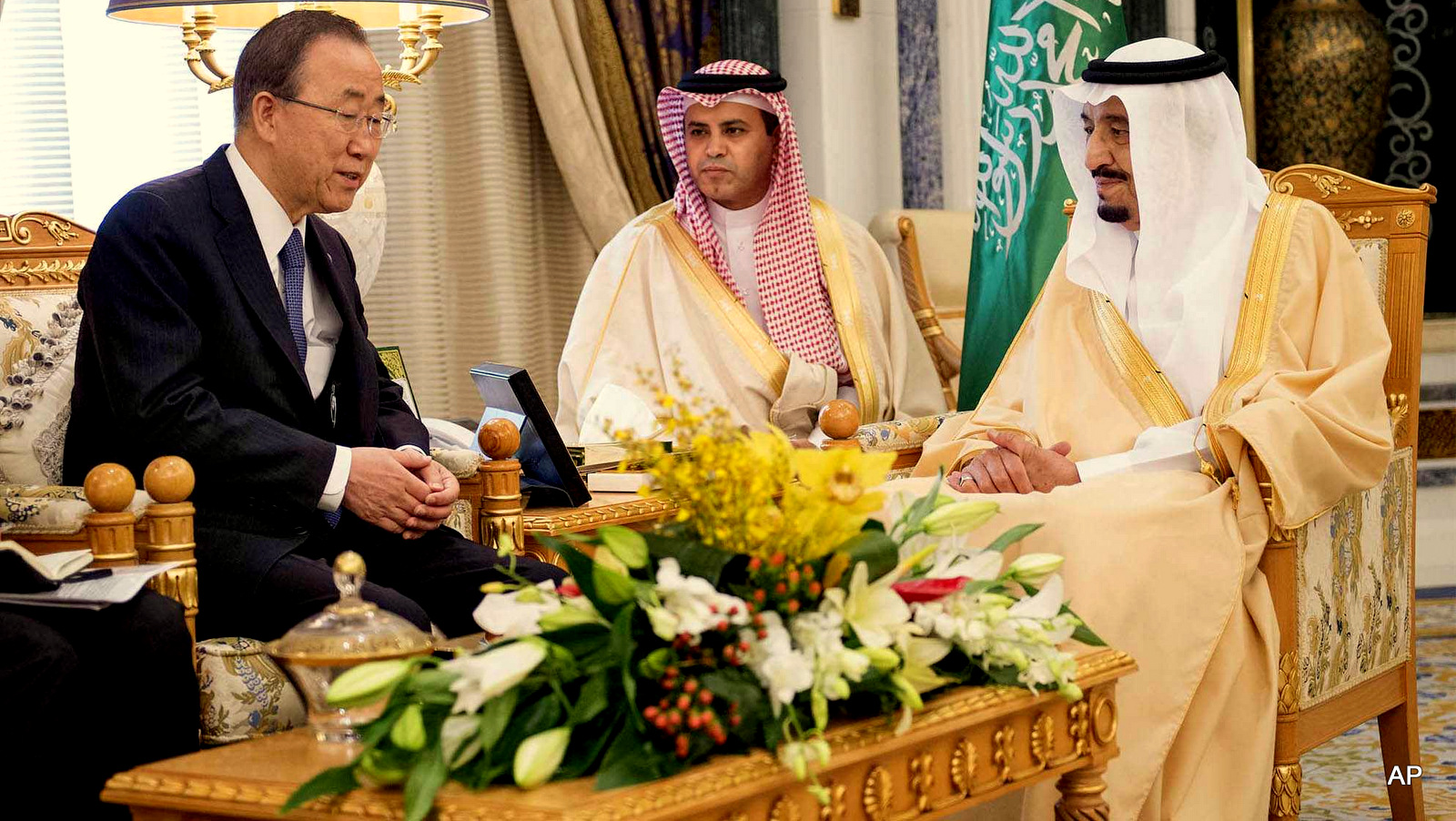
“From the onset of this conflict King Salman has walked outside international law. There is nothing remotely legal about attacking a sovereign nation. The argument Saudi Arabia aimed to preemptively strike Yemen in order to stop the so-called ‘Shia crescent’ from further strengthening its hold on the region is both legally erroneous and redundant. What is troubling is the speed at which the kingdom is institutionalizing war crimes,” Al-Emad, the journalist and political commentator based in Yemen, told MintPress.
Al-Emad added: “It is one thing to declare war against a country and another to select a segment of population for annihilation. How long before Saudi Arabia’s ill intentions against all Zaidis and Shias in Yemen are understood for what they are? Genocidal.”
Although no legal action has been taken against Saudi Arabia, the kingdom’s humanitarian and human rights violations in Yemen have come to define the very nature of its war on the tiny, impoverished nation.
Even the sectarian aspect of Riyadh‘s wrath has transpired in official reports, giving weight to Yemenis’ mounting accusations of ethnic cleansing. The Office of the U.N. High Commissioner for Human Rights raised concerns in this area, as well, as a U.N. report issued in July notes: “The UN rights office is also acutely worried about increasing attacks against places of worship, pointing to the targeting of five Zaydi mosques with car bombs over the past few weeks as an alarming trend to create sectarian divisions.”
Additionally, Cécile Pouilly, spokesperson for the OHCHR, confirmed mounting abuses against civilians when she explained: “Since 17 June, there has been further destruction of civilian infrastructure, with at least 36 buildings, including hospitals, schools, court houses, power generation facilities and communications institutions partially or totally damaged in the governorates of Sana’a, Aden, Taiz, Al-Jawf, Al-Mahwit, and Hajjah.”
The Saudis have not been alone in violating international law, though. The Houthis have also committed their share of war crimes. In May, for example, Human Rights Watch accused pro-Houthi forces of killing civilians and holding aid workers hostage in the southern seaport of Aden. But it is the sectarian intent and systematicity behind Riyadh’s military campaign which has rights activists ringing the alarm.
Speaking to MintPress, Hussain Abu Salem, a human rights activist based in Saada, a northern province of Yemen, located south of Saudi Arabia, who personally documented Saudi air raids against identified Zaidi-targets in northern Yemen, compared Riyadh’s actions against Yemen’s Zaidi community to Israel’s attacks against Palestinians:
“Saudi Arabia knowingly and willingly targets Zaidi villages and Zaidi monuments. It seeks the destruction of Yemen Zaidi heritage. It wants to surgically remove all Zaidi Yemenis from political, religious, economic and social life. The kingdom is following in the footsteps of Israel in all impunity. It is exactly the same logic, the same methods and of course the same justifications.”
“This is the thing about right violations,” he added, “when the world does nothing to impose the law, when the powerful can oppress the weak, then injustice becomes the rule of law.”


